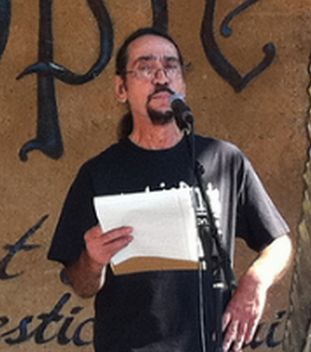On the other hand, a Black social movement that is strong enough to force the state to grant reparations would, by definition, have no problem identifying popular needs to be addressed through reparations resources, since an important task of movements is to identify areas of need and organize accordingly.
We see that one of the problems with reparations discussions is that they often seem to presume that the payback, the settlement in whatever form can be achieved in the absence of a Black movement far deeper and stronger (and smarter) than any we have yet experienced and, certainly, a much-weakened capitalist class. Of course, the same can be said of Dr. Reed's vision of "broad solidarity across race, gender and other identities around shared concerns of daily life." Achieving the full expression of those words presumes a "coherent, knowable," shared political agenda among a rainbow of organizations and constituencies, an ideal that has proven even more elusive than Black unity in U.S. history.
Reed is on to something when he critiques the tendency of some reparations proponents to dwell on symbolic issues such as Black "monuments and statuary," but the same applies to petty bourgeois Black elements that oppose reparations. He strains to rhetorically link reparations folks with calls for public apologies for slavery. But the fact is, based on political demographer Michael Dawson's data, 80 percent of Blacks would have liked such an apology from George Bush's government.
Reed questions whether Black people will "mobilize around earlier generations' grievances to pursue current objectives." Earlier grievances? That Black folks' current grievances are rooted in earlier grievances is a rather well understood concept among African Americans. Whatever holds Black people back from mobilizing in their own immediate interest, it's not the feeling that they're being asked to fight old people's battles.
Cultural Nationalists
Dr. Reed is right about those "narrow" and "cultural nationalists" virtually all of whom call for reparations who think Black folks are most in need of "moral and psychological repair": "psychobabble" solutions, instead of real-world strategies. But that has nothing inherently to do with the concept of reparations, which is rooted in the material world of economic consequences and hard data, not squishy romanticism.
"I know that many activists who have taken up the cause of reparations otherwise hold and enact a politics quite at odds with the limitations that I've described here," wrote Reed, granting that not all reparations supporters are "narrow" nationalists or aspiring "brokers." But then he comes quite close to labeling the whole crowd as opportunists. "To some extent, I suspect their involvement stems from an old reflex of attempting to locate a progressive kernel in the nationalist sensibility. It certainly is an expression of a generally admirable commitment to go where people seem to be moving. But we must ask: What people? And where can this motion go? And we must be prepared to recognize what can be only a political dead end -- or worse."
"Dr. Reed seems to view Black people's belief that they are entitled to reparations as an unfortunate state of affairs."
Thus we see that Dr. Reed considers all manifestations of Black nationalism the belief that African Americans have become a nation within a nation during their sojourn in North America, and have the right to group self-determination as essentially empty of progressive content, "or worse." In accusing reparations supporters of going "where people seem to be moving" he appears to deny that these activists sincerely believe that demands for reparations are both legitimate and necessary to build a Black movement. Dr. Reed also seems to view Black people's belief that they are entitled to reparations as an unfortunate state of affairs that might impede efforts to forge "broad solidarity across race, gender and other identities" as if the two visions are mutually exclusive.
Despite the seriousness of differences over reparations on the Black Left, conscientious activists can work around them. Not so with Henry Louis Gates. He works for the other side.
BAR executive editor Glen Ford can be contacted at Glen.Ford@BlackAgendaReport.com.
(Note: You can view every article as one long page if you sign up as an Advocate Member, or higher).





